Transforming Your Augusta, GA Backyard into a Tranquil Zen Garden
In today’s fast-paced, always-on world, having a place to retreat and find tranquility is not just a luxury—it’s a necessity. And what better place to find peace than in your own backyard? Zen gardens, traditionally known as Japanese rock gardens, offer a serene sanctuary right at home. They have become increasingly popular in residential landscaping, offering a unique blend of beauty and tranquility. Let’s explore how you can bring the calming influence of a Zen garden to your Augusta, GA home.
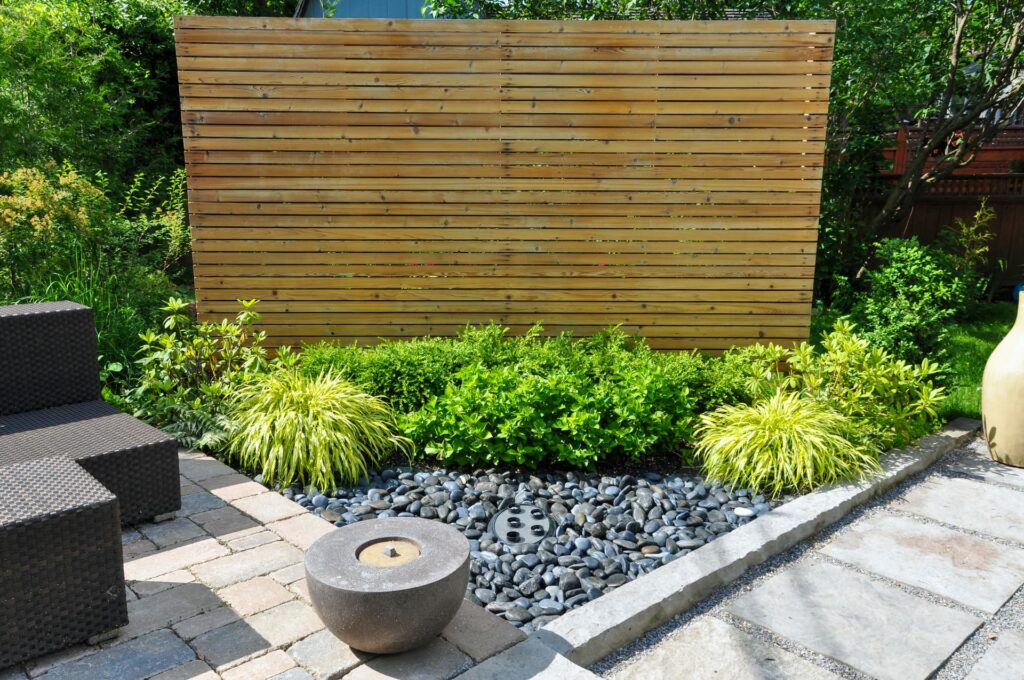
Understanding the Zen Garden
Zen gardens, or “Karesansui” in Japanese, trace their origins back to the Zen Buddhist temples in Japan. They were originally designed to stimulate meditation and inspire insights into the meaning of life and the universe. Zen gardens are known for their minimalist approach, typically featuring gravel or sand, rocks, and the occasional plant or moss.
Simplicity and Minimalism
A Zen garden is an expression of simplicity. The design primarily consists of sand or gravel and carefully chosen rocks. The sand is often raked in patterns to symbolize water, while the rocks can represent mountains, islands, or even animals.
Symbols and Abstractions
Everything in a Zen garden is symbolic. The sand or gravel represents water, the rocks depict land, and the few plant elements included usually have their symbolic meanings. The abstract and symbolic nature of Zen gardens is part of what makes them unique and intriguing.
Creating Your Zen Garden
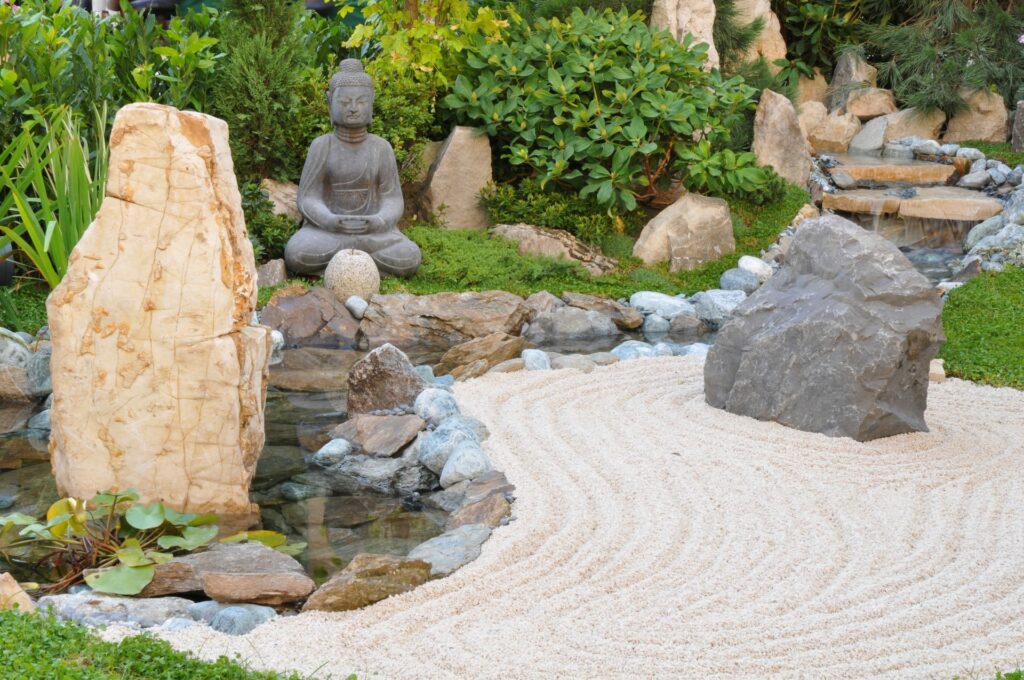
Creating a Zen garden requires careful thought and planning. You’ll need to decide on the size and location, choose the right elements, and plan out your garden’s layout. Here are some things to consider.
Choosing the Right Location
The location of your Zen garden can significantly influence its feel and utility. A Zen garden doesn’t have to be large; a small corner of your yard can be transformed into a peaceful oasis. The location should be somewhere quiet and serene, preferably with some shade.
Selecting the Elements
The primary elements of a Zen garden are rocks and sand, but you can also include moss, small plants, and other elements like water features or subtle lighting. The rocks are the main focus and should be chosen carefully. They can be of different sizes and shapes but should have an aesthetic harmony.
Planning the Layout
The layout of your Zen garden is where you can get creative. The rocks can be arranged in various ways – they can be grouped together to represent a mountain or placed separately to symbolize islands. The sand or gravel should be raked in patterns around the rocks to signify water.
The Art of Zen Garden Maintenance
Zen gardens are designed to be a place of calm and tranquility, and this extends to their maintenance as well. Here are some tips on how to maintain your Zen garden.
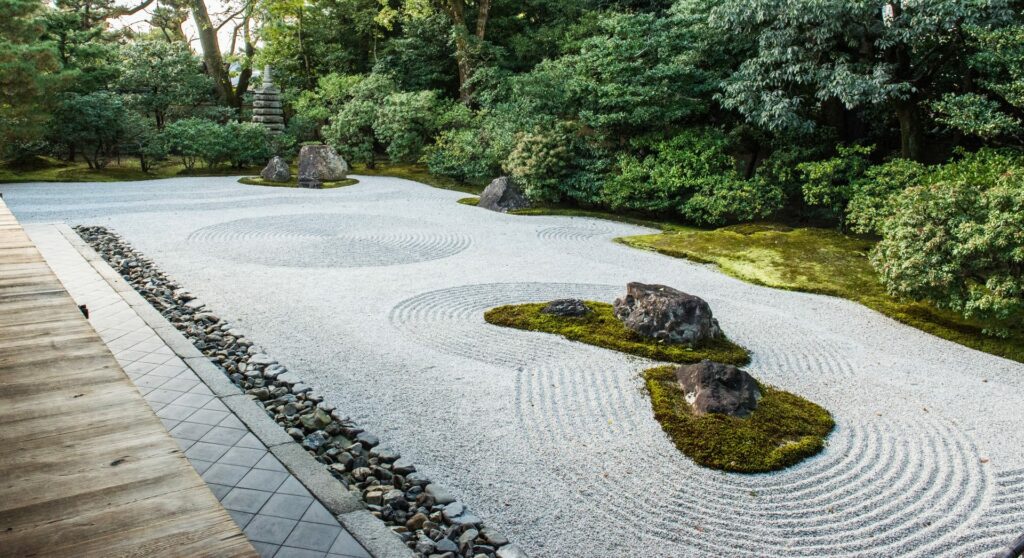
Raking the Sand
Raking the sand or gravel in your Zen garden is a form of meditation. It’s an opportunity to engage in a quiet, repetitive activity that encourages mindfulness and relaxation. The patterns you create with the rake can symbolize waves, water ripples, or simply be an abstract design that pleases you.
Caring for the Rocks
While rocks don’t require the same level of care as plants, they still need some maintenance to keep them looking their best. This includes cleaning them to remove any dirt or debris and checking regularly to ensure they haven’t shifted or been disturbed.
Pruning and Trimming Plants
If you’ve included plants or moss in your Zen garden, these will need to be pruned and trimmed regularly to maintain a neat, tidy appearance. Remember, Zen gardens are about minimalism and simplicity, so any plants should enhance this aesthetic, not detract from it.
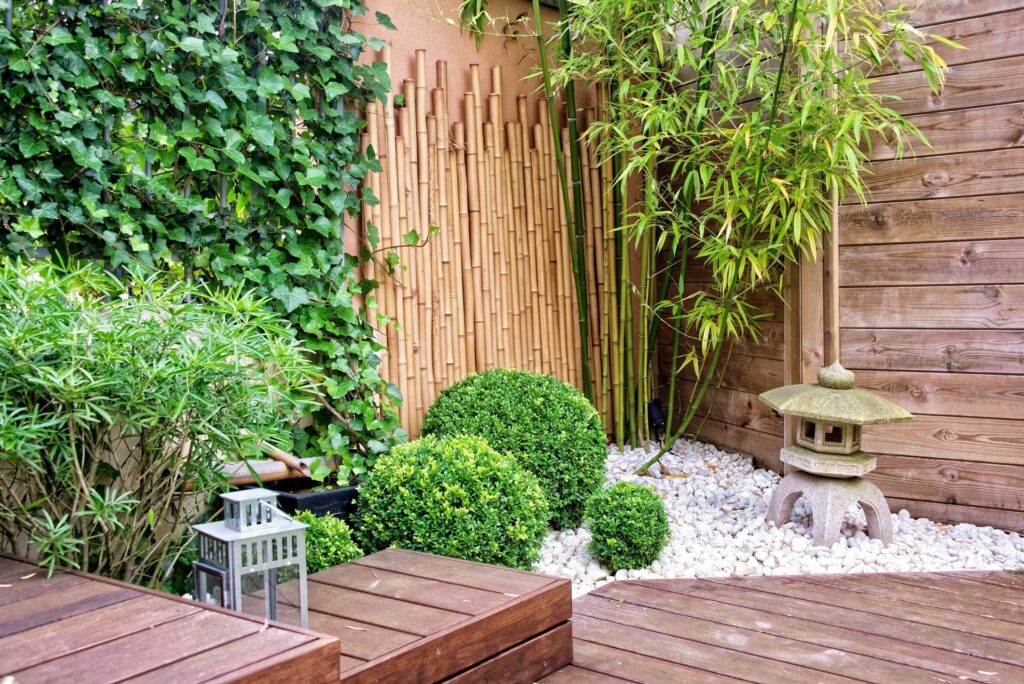
Experiencing the Zen Garden
A Zen garden is more than just a beautiful landscape feature; it’s a place for contemplation and relaxation. Here’s how you can get the most out of your Zen garden.
Meditation and Mindfulness
Zen gardens were originally designed as aids for meditation. The act of raking the sand, placing the rocks, and even just sitting and gazing at the garden can encourage a state of mindfulness, bringing you into the present moment and helping to reduce stress and anxiety.
A Space for Quiet Activities
Your Zen garden can be a perfect space for quiet activities like yoga, tai chi, or reading. These activities can help enhance the peace and tranquility of the garden and provide a wonderful way to start or end your day.
Enjoying Throughout the Seasons
The minimalist nature of Zen gardens means they can be enjoyed year-round, with each season bringing a different kind of beauty. In the spring and summer, any moss or plants in your garden will be lush and green; in the fall, they will add a splash of color; and in the winter, a dusting of snow can make your garden look like a beautiful ink painting.
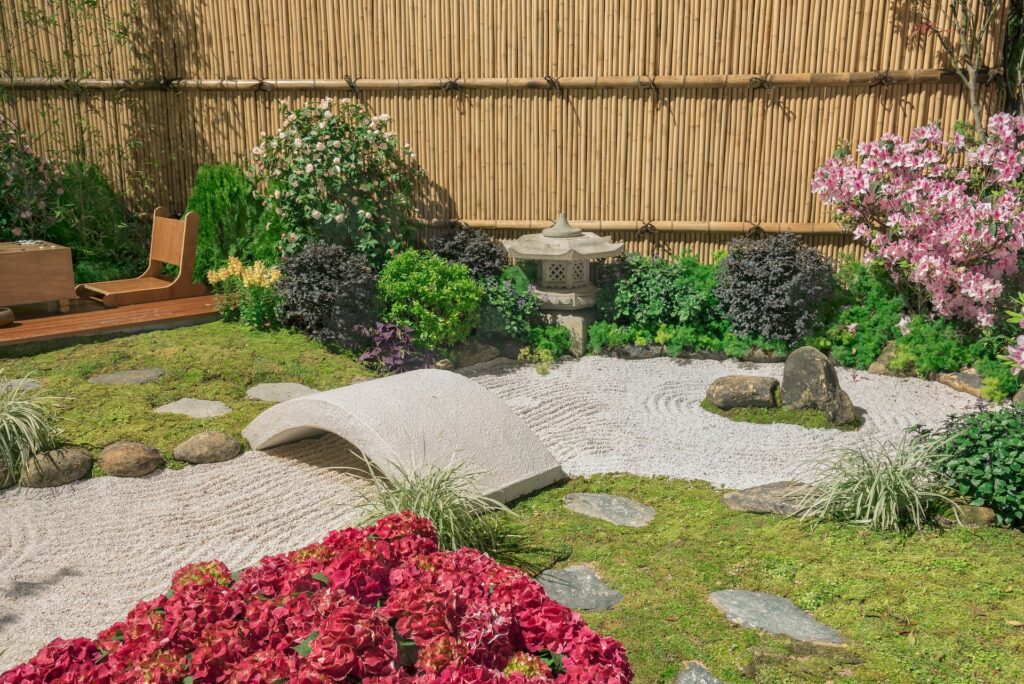
Conclusion
Zen gardens can provide a tranquil oasis in your Augusta, GA backyard, offering a space for relaxation, reflection, and connection with nature. Their minimalist design and symbolic elements can bring a sense of calm and tranquility to your outdoor space, making them an increasingly popular choice in residential landscaping. Whether you’re looking to improve your mindfulness practice, or simply create a serene space to enjoy a cup of tea, a Zen garden might be just what you need.
Creating a Zen garden is an opportunity to express your creativity and engage in a truly transformative landscaping project. With careful planning and a thoughtful approach to design and maintenance, you can create a backyard oasis that will provide peace and tranquility for years to come.